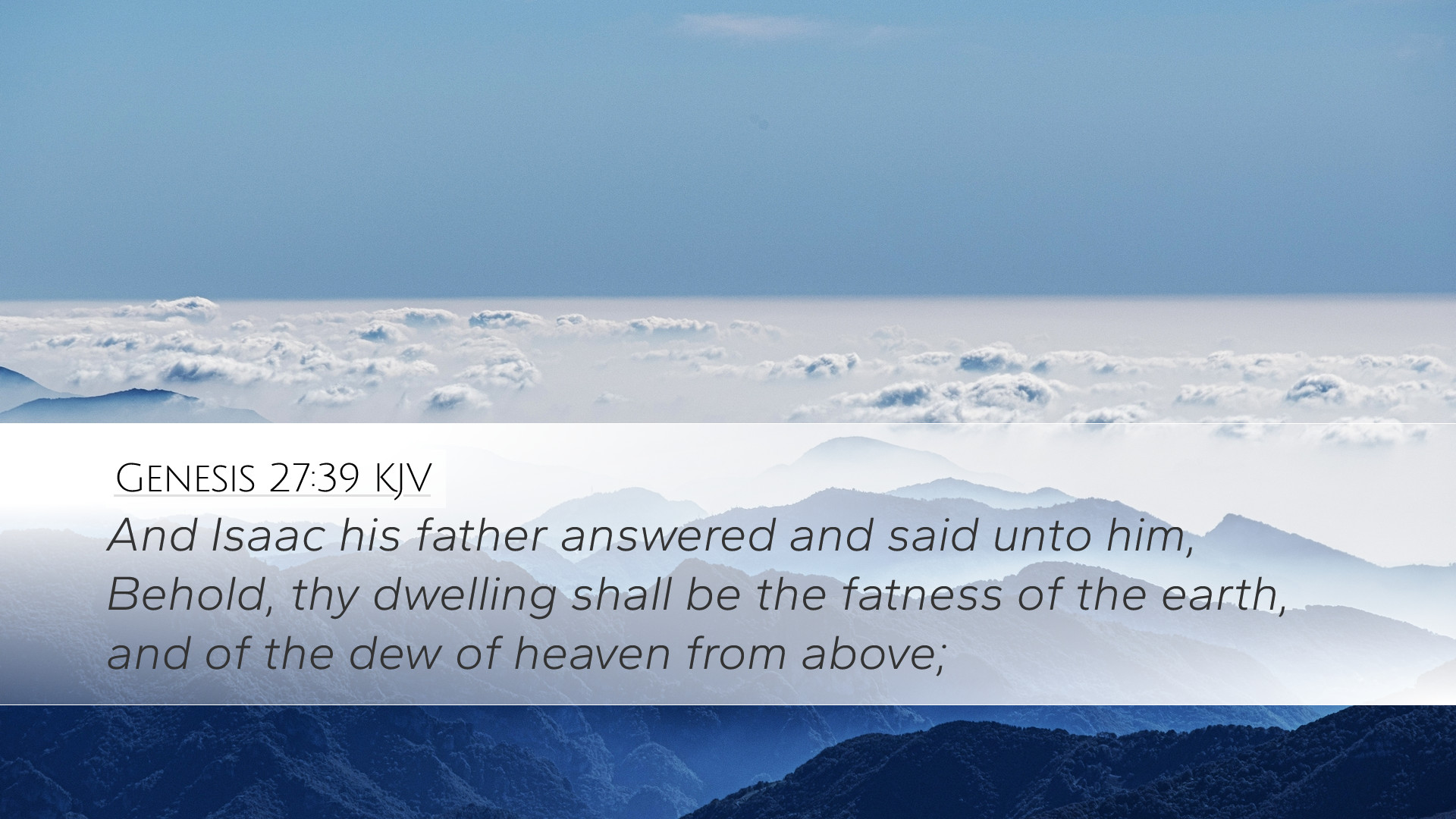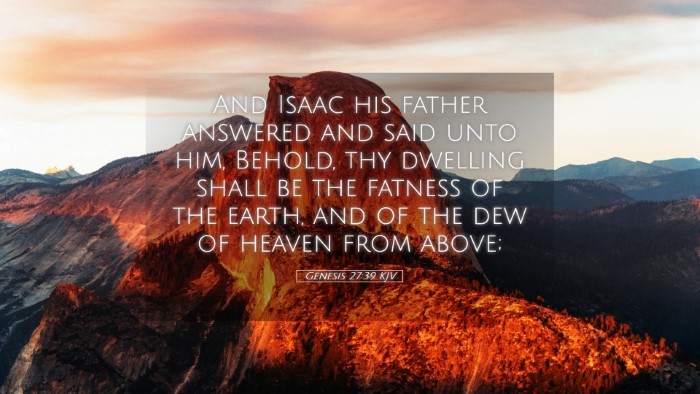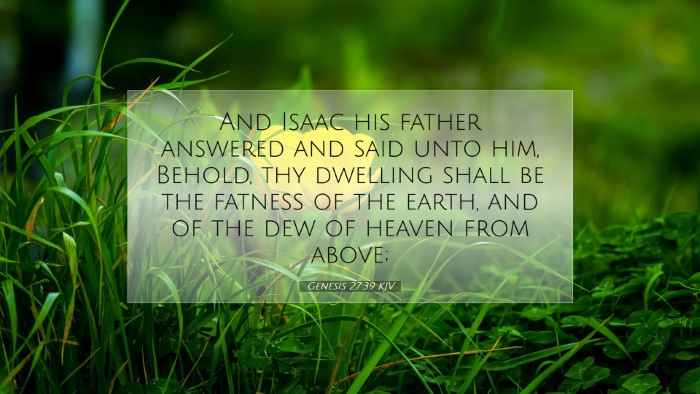Commentary on Genesis 27:39
Verse Text: "And Isaac his father answered and said unto him, Behold, thy dwelling shall be the fatness of the earth, and of the dew of heaven from above."
Introduction
This verse comes at a critical juncture within the narrative of Genesis, reflecting the themes of blessing, familial conflict, and divine providence. In Genesis 27, Isaac’s blessing is mistakenly bestowed upon Jacob instead of Esau, creating deep-seated tensions that have implications throughout the biblical text.
Exegesis of Genesis 27:39
Isaac’s pronouncement to Esau encompasses both a declaration of his future and a subtle recognition of the divine choice that aligns with earlier prophetic revelations. The phrase "thy dwelling shall be the fatness of the earth" suggests a promise of sustenance and abundance, which is fundamentally linked to one’s relationship with God and the land.
1. The Context of the Blessing
To fully appreciate this verse, it is essential to consider the surrounding context. Isaac, aged and nearly blind, intended to bless Esau but was deceived by Jacob. This incident underscores the tension between human actions and divine will.
2. The Significance of 'Fatness of the Earth'
The term "fatness" (Hebrew: chemdah) signifies abundance and richness. Matthew Henry highlights that Isaac's blessing speaks of a future where Esau would have ample resources and material prosperity. Such blessings are often indicative of one's covenant relationship with God, as land and prosperity were integral to the Israelites’ understanding of God's favor.
3. 'Dew of Heaven' as a Symbol of Divine Favor
The "dew of heaven" represents God’s provision and care. Albert Barnes notes that this phrase has a dual connotation: it reflects both the physical sustenance that comes from the environment and the spiritual sustenance from God's presence. The inclusion of 'dew' indicates that while Isaac offered a material blessing, it was inherently linked to the divine source of life itself.
4. The Contrast with Jacob's Blessing
When juxtaposed with Jacob's blessing, which was richer in spiritual significance, we see the complexities of divine election. Adam Clarke suggests that while Esau receives a tangible blessing, Jacob's spiritual inheritance signifies a greater reality within God’s plan for redemption.
Theological Implications
The narrative surrounding Genesis 27:39 raises pertinent theological questions about choice, predestination, and the unfolding of God's purposes amidst human actions. The blessings given by Isaac—for both Jacob and Esau—illustrate the multifaceted nature of God’s covenant.
1. God's Sovereignty
This verse reveals how God's sovereign purpose continues to unfold despite human failures and deceptions. Even as Isaac sought to bless Esau, God’s prior declaration concerning the elder serving the younger (Genesis 25:23) remains in effect. This demonstrates God's overarching control over history.
2. Familial Relationships and Conflict
Esau's response to Isaac’s blessing illustrates the emotional and relational fallout from this conflict. It underscores how personal desires can cloud one’s relationship with God and the covenant community. The struggle between Jacob and Esau is emblematic of the broader struggle between flesh and spirit.
Pastoral Applications
The insights from this verse can serve as profound lessons for pastoral ministry today:
- The Importance of Prayerful Guidance: As leaders, seek God’s wisdom in decisions that affect others’ lives.
- Understanding God’s Will: Encourage congregants to embrace God’s sovereign plan, even when it contradicts personal expectations.
- Healing Familial Strife: This narrative calls for recognition of conflict within families and the need for reconciliation through Christ.
Conclusion
In Genesis 27:39, we witness a moment that encapsulates the complexity of divine blessing, the weight of human decisions, and the unfolding purpose of God. As pastors and theologians engage with this text, it beckons a reflection on our own lives and ministries, encouraging a deeper understanding of God's grace amid our human frailties.


